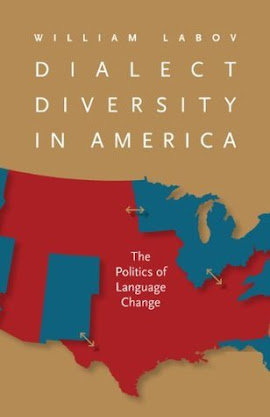William Labov has spent decades studying dialects of English in America, and what his studies reveal are results contrary to common assumptions about dialect in America.
Among those results is that, contrary to popular assumption, broadcast television and radio, and other mass media, are not causing dialect diversity to decrease. Dialects across large regions are not changing to become more alike, but in some ways more different. This includes Northern Inland, Midland, and Southern dialects. Changes in these dialects have progressed somewhat in step with each other--but not in the direction of becoming more similar. Sound changes have arisen and are still arising that produce misunderstandings between primary speakers of one dialect and another. Thinking of language as a means of communication, it seems unexpected that dialects would move further apart when speakers of those dialects are communicating directly with each other as well as consuming the same national media. Labov looks at what seem to be the causes of this seemingly strange development.
But this is about English As She Is Spoke In America (this is me being a little flippant, not anyone's actual dialect), and race also plays a major role. Black Americans, at home and in majority-black communities, do not speak the same dialect as whites in the same geographic area. They speak a dialect that has been given a variety of names, all of which have become a subject of intense and highly political controversy. The name Labov uses is African-American Vernacular English, or AAVE.
There is disagreement about the origins of AAVE, but it is spoken by black Americans, north and south, and across the country. It's a fully developed dialect, to the degree that I'm reminded of the saying that a language is a dialect with an army. And AAVE shares most of its vocabulary with Standard English, but has pronunciations and grammatical structure that differs from Standard English and the primary white-used dialects in some significant ways.
It's not bad English. It's not lazy English. It's just a different, fully functional, dialect. It's the language black Americans speak at home and in majority-black communities, and is more common, and more advanced, i.e., more different from Standard English, the greater the degree of segregation in the areas they live in.
And this has a significant impact on reading scores in schools.
What's necessary to improve reading scores for black students is to start by recognizing that they are speaking a different dialect, and need to be taught how to understand and use Standard English. What's challenging for people steeped in Standard English and the white-used dialects is accepting that AAVE isn't lazy English, isn't bad English, isn't just emotional spewing of phrases. It's a real dialect. Kids don't need to be punished for using it; they need to be taught how to move between Standard English and AAVE, based on setting and situation. My maternal grandparents were Sicilian. They didn't arrive in this country speaking English; they didn't even speak standard Italian. They spoke a Sicilian dialect--and once they were well-established in the US, they were living in a community with people from all over Italy, and also from Poland. That resulted in my mother and her siblings speaking a dialect that was spoken literally nowhere in Italy, when they were at home, or outside in the neighborhood.
My mother and her siblings were taught English in school. For all that there was an impressive bias against Italians at the time, they were taught English, not punished for not already speaking Standard English, speaking an admittedly strange dialect of Italian.
Proposals to do the same, to acknowledge the dialect many black American children are speaking at home and in their neighborhoods, and actually teach them the differences and the situations in which they need Standard English, without eliminating AAVE from their lives, have many times been proposed, and many times been pilloried as racist,"teaching bad English," letting bad English take over.
I mentioned my mother's family and their Sicilian dialect of Italian, but I think at least equally relevant is Yiddish. It's a dialect of German. It's not "good German," if by good German you mean standard, generally accepted German. Yet there's an extensive and respected body of literature in Yiddish, and when we talk about it, we don't call it bad German.
As I was writing this review, I wondered, are there novels written in AAVE? Yes there are. And in the science fiction and fantasy that's a great deal of my leisure reading, it's starting to show up as part or all of stories written by African-American SFF writers. And yes, initially, for someone for whom it's not my native dialect, I take it slowly--but it's worth the effort. Good literature is good literature, and it's a dialect where you have to recognize some different grammatical structures and background assumptions, not a completely separate language. Being open to it has made some excellent literature available to me that I would otherwise have missed out on.
Labov talks a lot about the nitty-gritty of how linguists work out what's happening in our language, as well as the politics that have hampered recognition of AAVE and of effectively teaching spoken and written standard English. Politics I get; there was more of the nitty-gritty of linguistics than I was prepared for, and that made reading it harder work for me.
It was worth the effort.
I bought this book.

No comments:
Post a Comment